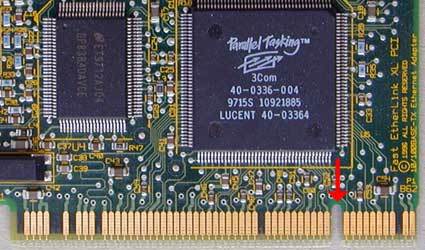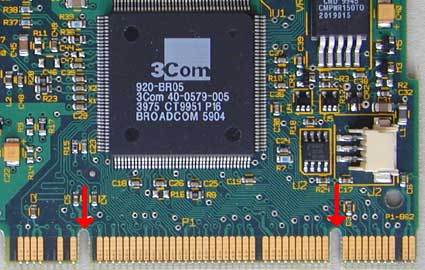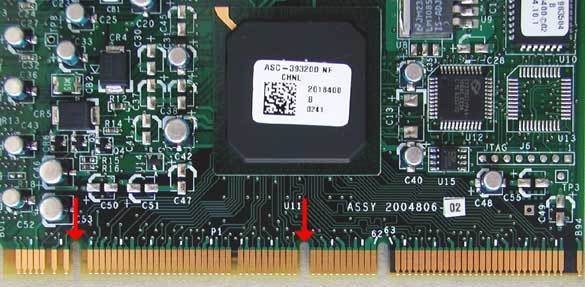Data Fever: Ultra320 SCSI from Adaptec and LSI Logic
Test System: With PCI-X, Please!
Before publishing this article we had to come up with an appropriate basis in order to do justice to the current SCSI interface. The problem is that normal consumer and business PCs work with 32 bit PCI buses, which for the most part operate with 33 MHz. This produces a bus transfer rate of 132 MB/s (32 bits x 33 MHz / 8).
For many applications this would even suffice, if it wasn't also being tapped by other devices. All devices resident on the PCI bus access the 132 MB/s bus as one. Sound system, network controller, the TV card ... they all feed off the aggregate.
Ultra320 SCSI already tells you how high the maximum transfer rate is. As is obvious from the label, the Ultra320 handles flows of up to 320 MB/s. Nor are dual-channel configurations unusual, so 640 MB/s can be expected - assuming there is an adequate number of hard drives. Currently only the PCI-X, which can work with 64 bits and up to 133 MHz (1,064 MB/s), is fast enough. Almost all available host adapters include a PCI memory interface. The major advantage of this interface is its downward compatibility with PCI 2.x.
PCI-X is often made out to be a mystery, but knowing a couple of simple facts will get you by:
- The bus handles 66 or 133 MHz - depending on the plug-in card used. Some plug-in cards can be operated at whatever their maximum speed is.
- A PCI-X slot can also operate any PCI plug-in card with 33 or 64 MHz. To do this, it has to correspond to PCI standard 2.1 or later, and have the second connector (see the pictures below).
- PCI-X plug-in cards are also compatible with PCI 2.x. If, for example, a 64 bit PCI host adapter is plugged into a 32 bit slot, it will work exactly the same - but at a smaller bandwidth.
Above: 64 bit PCI-X slot. Below: PCI 2.2.
Older PCI plug-in cards can be identified by the fact ...
... that there is no second connector in the slot. This is available from PC 2.1 on, and also guarantees compatibility with 64 bit slots. Both network cards are from 3COM and are compatible with the original type 3C905TX. The later version uses a 3C920-type controller.
Get Tom's Hardware's best news and in-depth reviews, straight to your inbox.
And finally, here is the PCI-X slot. Due to the higher number of contacts (64 rather than 32 bit bus width), the slot is longer.
Current page: Test System: With PCI-X, Please!
Prev Page LSI Logic 20320R Next Page Test System: Dual Pentium 4 Xeon 2.8 GHz
Patrick Schmid was the editor-in-chief for Tom's Hardware from 2005 to 2006. He wrote numerous articles on a wide range of hardware topics, including storage, CPUs, and system builds.



